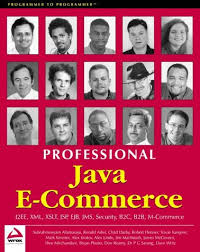White Paper: Mastering Java with "Professional Java"
Abstract
Java, a versatile and widely-used programming language, continues to be a cornerstone of software development. "Professional Java" by Nicolas Fränkel is a comprehensive guide that delves deep into the intricacies of Java programming, offering practical insights and best practices for both beginners and experienced developers. This white paper explores the key concepts and benefits of mastering Java, highlights the value of "Professional Java," and provides actionable tips for leveraging its knowledge to build robust and efficient Java applications.
Introduction
Java's popularity stems from its platform independence, strong typing, and rich ecosystem of libraries and frameworks. "Professional Java" serves as a valuable resource for anyone seeking to enhance their Java skills. By following the guidance provided in this book, developers can write clean, maintainable, and high-performance Java code.
Key Benefits of Mastering Java
- Platform Independence: Java's "Write Once, Run Anywhere" (WORA) principle enables code to be executed on various platforms without recompilation.
- Strong Type System: Java's strong type system helps catch errors early in the development process, leading to more reliable and robust applications.
- Large and Active Community: The vast Java community provides extensive support, libraries, and frameworks, accelerating development and problem-solving.
- Object-Oriented Programming (OOP): Java's object-oriented nature promotes modularity, reusability, and maintainability.
- Scalability: Java's scalability allows it to handle large-scale applications and high-traffic websites.
- Security: Java provides built-in security features to protect applications from vulnerabilities and attacks.
Key Topics Covered in "Professional Java"
- Core Java Concepts: Fundamentals of Java programming, including object-oriented programming, data structures, and algorithms.
- Advanced Java Features: Explore advanced topics like concurrency, generics, and functional programming.
- Java EE: Learn about Java Enterprise Edition, a platform for building enterprise-level applications.
- JavaFX: Dive into JavaFX for creating rich user interfaces and desktop applications.
- Best Practices: Gain insights into best practices for writing clean, efficient, and maintainable Java code.
- Real-world Examples: Learn from practical examples and case studies to apply concepts to real-world scenarios.
Leveraging "Professional Java" for Effective Java Development
To maximize the benefits of "Professional Java," consider the following tips:
- Practice Regularly: Consistent practice is key to mastering Java. Work on coding exercises, build small projects, and participate in online coding challenges.
- Explore the Java Ecosystem: Familiarize yourself with popular Java libraries and frameworks like Spring, Hibernate, and Apache Commons.
- Stay Updated: Keep up with the latest Java releases and advancements by following blogs, attending conferences, and participating in online communities.
- Collaborate with Other Developers: Learn from experienced Java developers, share knowledge, and collaborate on projects.
- Contribute to Open-Source Projects: Contribute to open-source Java projects to gain practical experience and learn from other developers.
Conclusion
"Professional Java" by Nicolas Fränkel is an invaluable resource for anyone looking to master Java programming. By understanding and applying the concepts presented in the book, developers can build robust, scalable, and efficient Java applications. As the Java ecosystem continues to evolve, staying up-to-date with the latest trends and best practices is crucial. By combining the knowledge gained from "Professional Java" with continuous learning and practice, you can become a proficient Java developer and contribute to the development of innovative software solutions.
References
- Fränkel, N. (2023). Professional Java. Wrox.
- Oracle Java Documentation: https://spring.io/
- Hibernate ORM: https://commons.apache.org/lang/
Additional Tips
- Online Courses and Tutorials: Consider taking online courses on platforms like Coursera, Udemy, or edX to supplement your learning.
- Java Community Forums: Engage with the Java community on forums like Stack Overflow to ask questions, share knowledge, and seek help.
- Java User Groups: Join local Java user groups to network with other developers and attend technical talks and workshops.
- Build Personal Projects: Apply your Java skills to personal projects to gain hands-on experience and showcase your abilities.
By following these guidelines and leveraging the resources provided in "Professional Java," you can embark on a successful journey of Java programming and create impactful applications.



